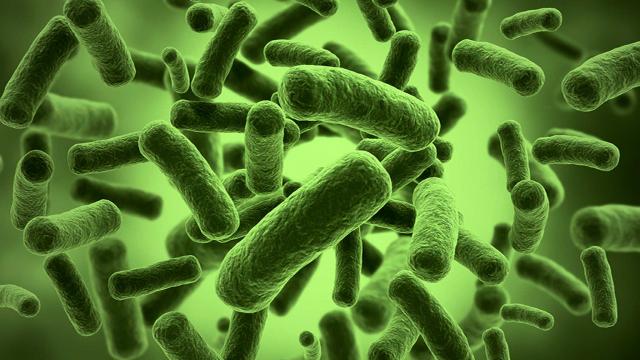Plenty of us live with the discomfort of digestive problems, which can manifest in many ways from bloating, feeling heavy and tired after eating, irregular bowel movements and stomach cramps. For many, these issues can be down to issues with stomach acid. The most obvious symptom of stomach acid issues is heartburn, where radiating, intense burning pain is felt in the middle of the chest, often after eating a big meal, when lying down and/or when eating on the go / while rushing and distracted. Heartburn refers to the sensation when acid splashes up and out of the stomach. More specifically, acid Reflux is when the acid rises up from the stomach into the oesophagus, and you get that sour taste.
Hydrochloric acid and digestion
The pain is being caused by hydrochloric acid (HCl acid), which is made by cells in the wall of the stomach, escaping from the top of the stomach and burning the delicate lining of the oesophagus (your throat), resulting in inflammation and pain. The solution may seem obvious, to take something that stops the burning by neutralising the acid. But for the vast majority of cases this is actually only going to make the matter worse.
Taking Omeprazole
There are many over-the-counter remedies for heart-burn, which neutralise the acid in the throat, thus reducing the pain. When these antacid medications stop working, the next step is usually a prescription from the GP for a type of drug called proton-pump inhibitor (PPI). These drugs (Omeprazole or Lansoprazole) reduce the output of HCL acid made in the stomach, greatly reducing levels of HCl in the stomach, hence no reflux.
Why we need stomach acid
Taking medication doesn't address the real problem. We absolutely need stomach acid as without it we cannot digest our food properly and vital nutrients like iron, B12 and others cannot be absorbed. What is needed is better management of the stomach acid. Usually this requires more stomach acid to be made, not less. If acid levels are high, the top of the stomach automatically clamps tightly shut, ensuring the acid cannot pass up in to the throat. It is, ironically, when we have too little stomach acid, that the top of the stomach remains partially open, allowing seepage of the acid upwards, resulting in pain
Eliminate heartburn
Understanding this mechanism is crucial to not only eliminating heartburn without drugs, but also ensuring full and proper digestion takes place throughout the whole of the intestinal tract, allowing good absorption of nutrients and a well-functioning, pain-free digestive system from top to bottom, quite literally! Being stressed is one of the main causes for too little stomach acid to be made. When we are in stress mode, the body is not expecting you to eat. Stress is our action, doing, busy mode.

The vital role of HCL
It’s important to really appreciate the vital role HCl acid plays in digestion. When we start to think about food when we’re hungry and certainly once we smell food and anticipate eating, our brain activates the stomach cells to make acid in preparation of food coming down. Once we start chewing, this system kicks in even more strongly ensuring plenty of acid is in the stomach when you swallow your food. The food passes down the oesophagus in to the stomach where the now highly acidic environment begins the process of breaking down the protein in your food. This can take between two or three hours if the system is working well. With plenty of stomach acid, the top of the stomach allows nothing to come back up, keeping your food and your acid tightly contained.
Neurotransmitters and protein
Proteins needs a lot of breaking down to become the critically important end products of protein digestion, called amino acids. Different amino acids have many different jobs in the body and if we don’t get adequate amounts of amino acids our ability to heal and repair starts to suffer. Amino aids mend tissues, heal muscles and provide the main ingredients for the manufacture of neurotransmitters, namely serotonin, our feel-good brain chemical, which is also essential for the manufacture of our sleep hormone, melatonin.
Fatty acids and digestion
Low acid levels means that the food leaving the stomach is not at a high enough acid level to trigger the production of yet more digestive enzymes, made by the pancreas, required for further break-down of our food. These should be excreted as the food passes out of the bottom of the stomach. Similarly, if our food leaves the stomach with inadequate acid levels, the gall bladder does not get triggered to release adequate bile in to the intestine. Bile breaks down our dietary fats in to fatty acids. Fatty acids have many vital jobs in the body, including hormone manufacture, transporting oxygen around the body and providing energy when glucose levels are low. So, without proper acid levels, the digestive activity is further impaired.

Bugs, parasites and bacteria
Stomach acid has a second important job. It kills off nasty bugs, parasites and bacteria that are on and in all of our food. Low acid levels can result in some of these undesirable bacteria and parasites passing in to the intestine. These bugs then feed on the food that is not being well digested, allowing the nasty bugs to thrive. As they eat and grow, these bugs produce lots of gas, resulting in painful bloating but also, these gases can cause a backpressure that forces its way back up in to the stomach and through the top of the stomach, allowing acid to leak up in to the delicate oesophagus, hence more burning. The stomach contents need to exit the stomach at a strong enough acid level to have broken down the proteins, killed off these nasty bugs and to turn on the biological switch for the rest of the digestive system to be fully activated. So, as you can see, reducing your HCl acid levels is a seriously bad idea.
HCl acid supplements
To improve your digestive processes, you need to have good levels of HCl acid kicking in as soon as you start to eat. There are HCl acid supplements that can be taken to increase acid levels and they are often combined with digestive enzymes to provide your digestive system with the key ingredients that it can’t make while acid levels are impaired. It is highly advisable to seek professional advice on what supplementation to take to ensure you are taking appropriate levels to ensure complete digestion. Over time, if you improve your focus on chewing, eating consciously and not while rushing around and distracted, your body will begin to increase its own production of HCl acid and enzymes and supplementation can then be gradually reduced and eventually stopped
Tips to boost your HCl acid
- Take a tablespoon of raw apple cider vinegar in a little water at the beginning of meals. This special kind of apple cider vinegar has to be unpasteurised and unfiltered. It contains enzymes and beneficial bacteria to support digestion but crucially, it also triggers stomach acid production, ensuring the top of the stomach clams tight shut when food enters. It also therefore improves your whole digestive capacity.
- Chew, chew, chew and chew some more. This triggers acid and enzyme production.
- Eat small amounts of protein at every meal.
- Manage stress – when we are stressed, our production of HCl acid reduces. The body isn't prepared for digesting, it's in fight or flight mode. Eating while stressed is a really bad idea.







